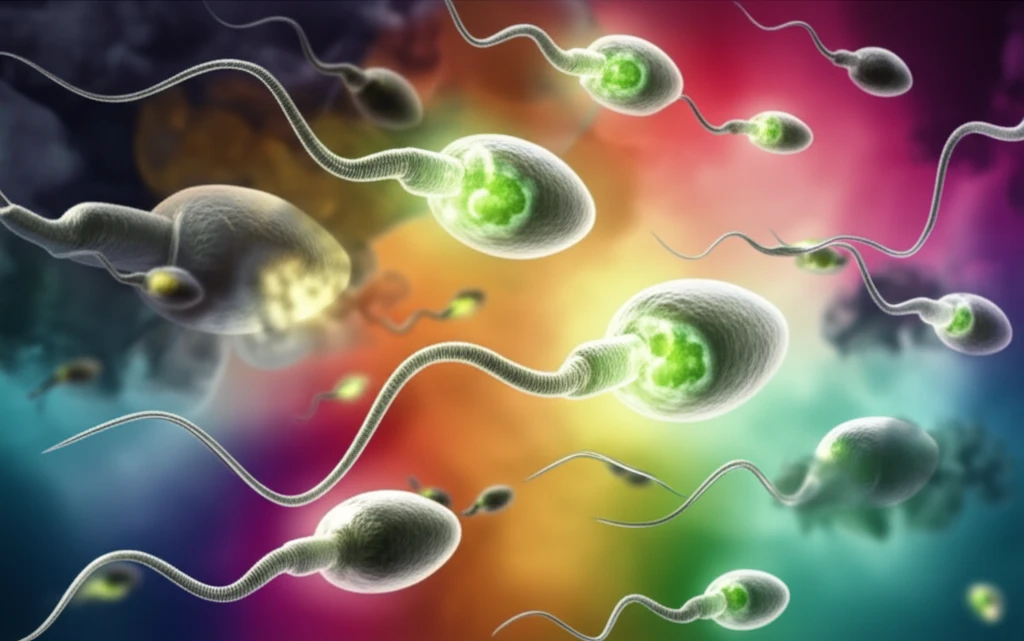
Unlock Your Fertility: The Power of Glutathione (GSH) in Sperm Health
"New research reveals how optimizing thiol levels can combat oxidative stress and improve sperm quality."
For couples navigating the complex world of fertility, sperm health is a critical factor. While discussions often center on female reproductive health, the vitality of sperm plays an equally important role in conception. Recent scientific investigations are shedding light on the intricate mechanisms that govern sperm quality, with a particular focus on the impact of oxidative stress and the protective power of antioxidants.
Oxidative stress occurs when there's an imbalance between the production of free radicals and the body's ability to neutralize them with antioxidants. This imbalance can damage sperm, affecting their motility (ability to swim), viability (ability to stay alive), and overall functionality. Think of it like this: if sperm are constantly battling a barrage of harmful elements, their energy is depleted, and their ability to reach and fertilize an egg is compromised.
Enter glutathione (GSH), a powerful antioxidant naturally produced in the body. Emerging research suggests that GSH plays a crucial role in protecting sperm from oxidative stress and maintaining their health. This article explores the fascinating link between GSH and sperm quality, offering insights into how optimizing thiol levels may unlock new possibilities for improving fertility.
The Science Behind GSH: How it Protects Sperm

A groundbreaking study by Ortega Ferrusola et al. (2018) delved into the significance of thiols, particularly glutathione (GSH), in regulating stallion sperm function. This research, conducted at the University of Extremadura (Spain) and the University of Newcastle (Australia), highlights the vulnerability of sperm to redox deregulation – an imbalance in the oxidation-reduction processes within cells. This deregulation leads to the production of 4-hydroxynonenal, a toxic byproduct of lipid peroxidation, ultimately contributing to sperm senescence (aging).
- GSH Depletion Harms Sperm: When GSH levels were artificially reduced, sperm suffered significant damage.
- Cysteine to the Rescue: Adding cysteine, a precursor to GSH, helped prevent the damage caused by GSH depletion.
- Sperm Can Synthesize GSH: The research suggests that stallion sperm possess the ability to synthesize GSH, utilizing exogenous cysteine.
- Enzymes Confirmed: The presence of Glutathione Synthetase (GSS) and glutamate-cysteine ligase (GCLC), two enzymes required to synthesize GSH, were detected in stallion spermatozoa.
The Future of Fertility: Harnessing the Power of GSH
The research by Ortega Ferrusola et al. (2018) opens exciting avenues for future fertility treatments and sperm preservation technologies. By focusing on strategies to maintain or enhance GSH levels in sperm, we may be able to improve sperm quality and increase the chances of successful conception. Further research is needed to fully understand the complexities of GSH metabolism in sperm and to develop targeted interventions that can optimize thiol levels. However, the initial findings are promising and suggest that GSH could be a key player in unlocking the secrets to improved male fertility.
